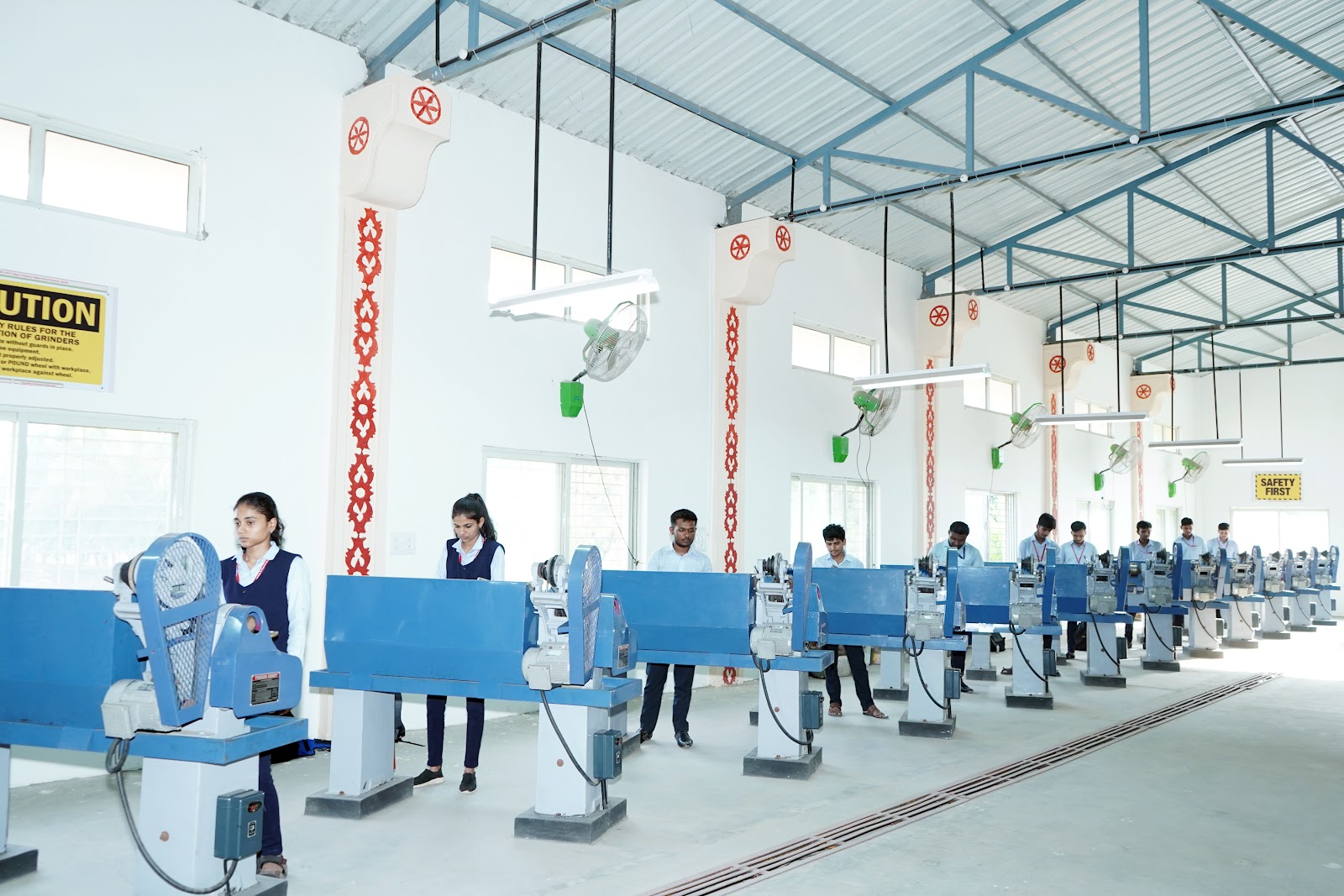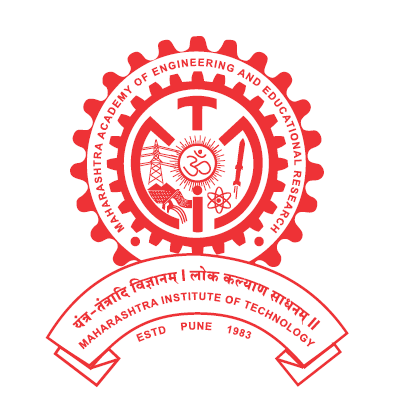Mechanical & Rail Engineering Laboratory Details
1. THERMODYNAMICS LABORATORY :
The Thermodynamics lab provides students with practical experience in exploring the fundamental principles of thermodynamics through hands-on experiments. Students conduct experiments to study topics such as heat transfer, thermodynamic cycles, properties of substances, and energy conversion processes. They utilize equipment such as heat exchangers, thermocouples, pressure gauges, and flow meters to measure parameters and analyze thermodynamic properties. Through these experiments, students gain a deeper understanding of thermodynamic concepts and their applications in engineering systems and processes.
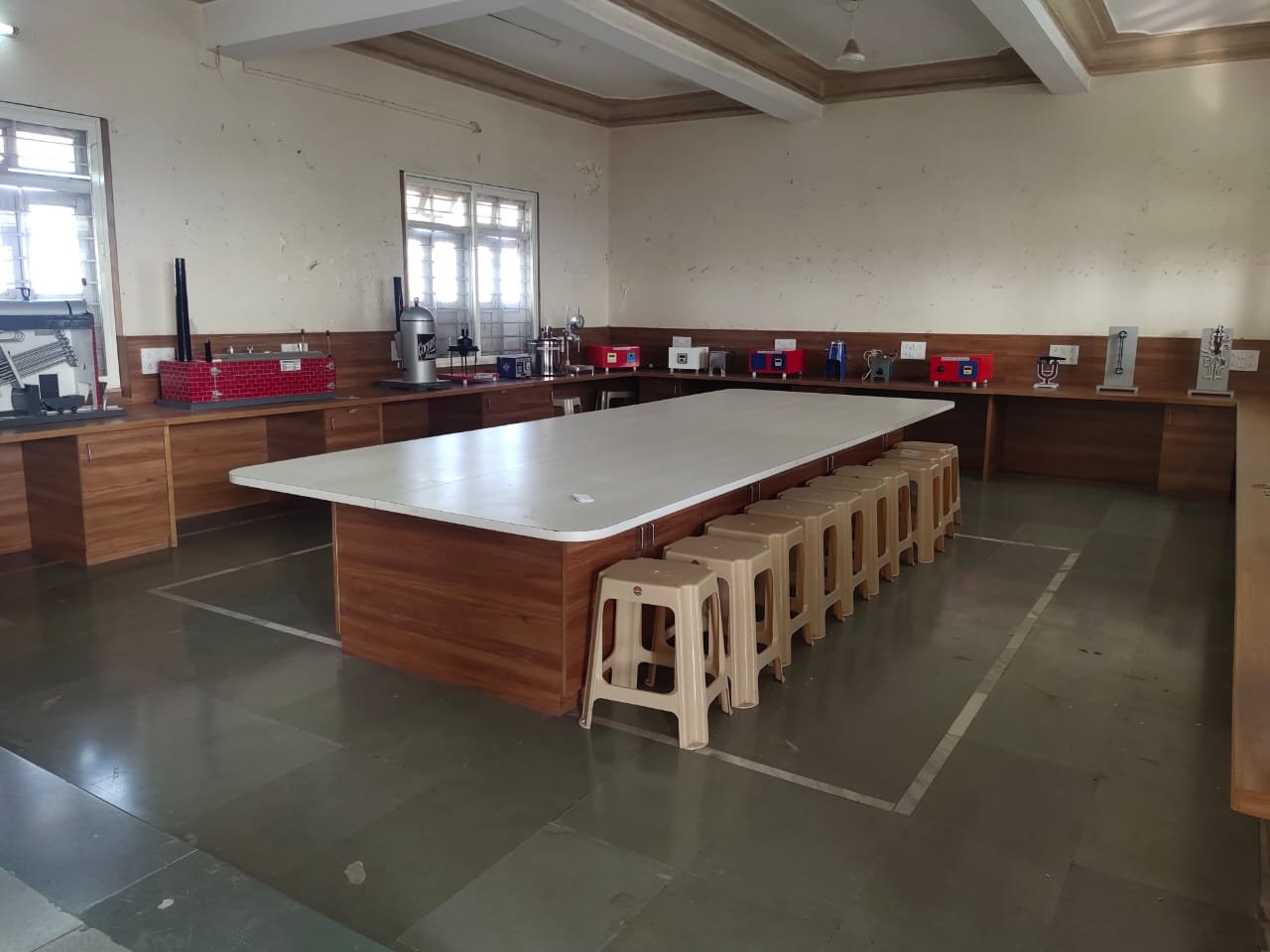
2. THEORY OF MACHINES LABORATORY :
The Theory of Machines lab offers students practical insights into the principles of mechanical motion and machine design. Through hands-on experiments and demonstrations, students explore concepts such as kinematics, dynamics, mechanisms, and mechanical vibrations. They use equipment such as cams, gears, linkages, and balancing machines to analyze the behavior of machines and mechanisms under different operating conditions. The lab provides a platform for students to apply theoretical knowledge to real-world engineering problems, fostering skills in machine design, analysis, and optimization.
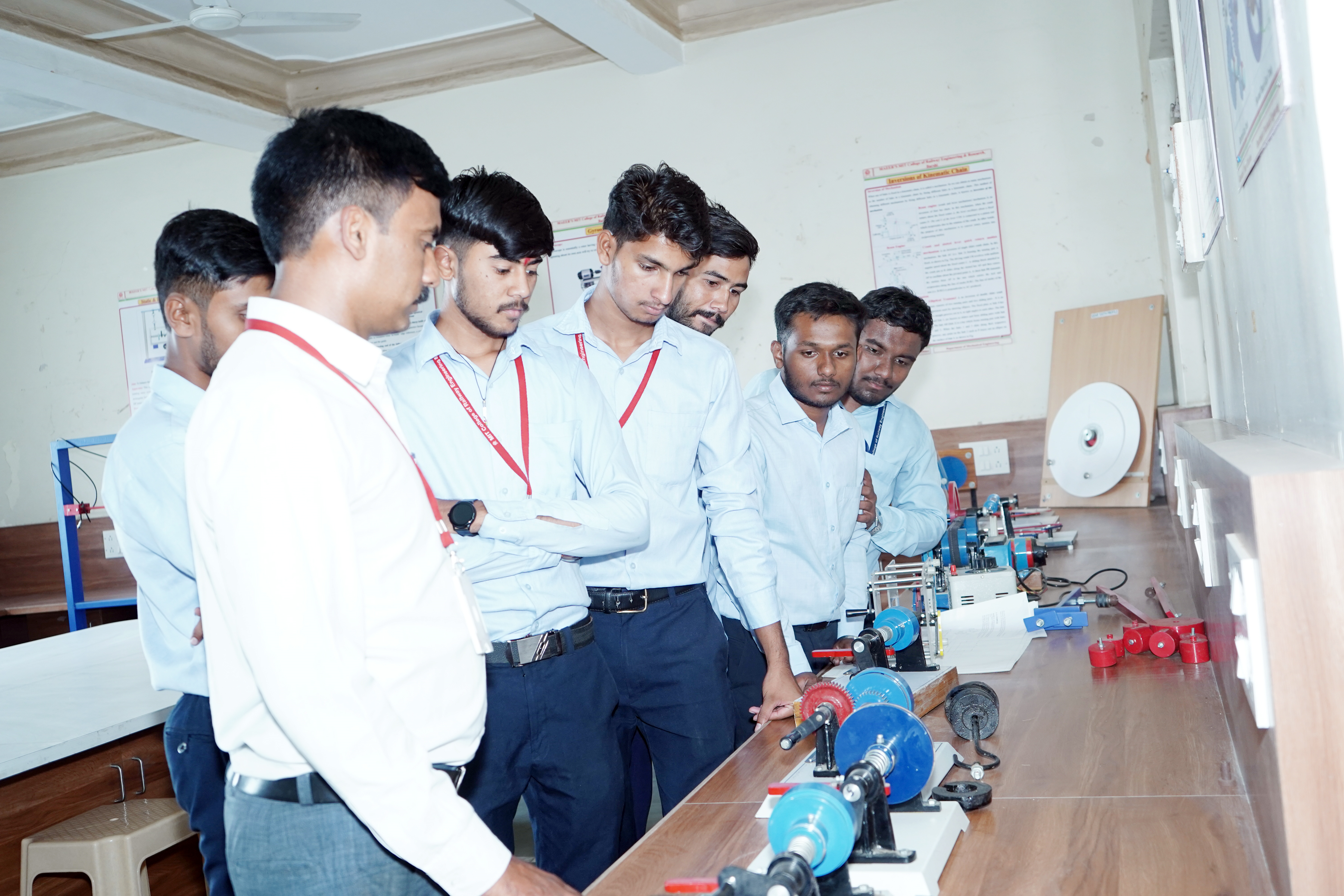
3. Metrology and Mechanical Measurement LABORATORY :
The Metrology and Mechanical Measurement lab offers hands-on training in precision measurement techniques essential for mechanical engineering. Through practical exercises, students learn to use a variety of instruments including micrometers, calipers, and gauges to measure dimensions, forces, temperatures, and pressures accurately. They gain proficiency in calibration methods, uncertainty analysis, and data acquisition, preparing them for real-world applications in quality control, manufacturing, and research.
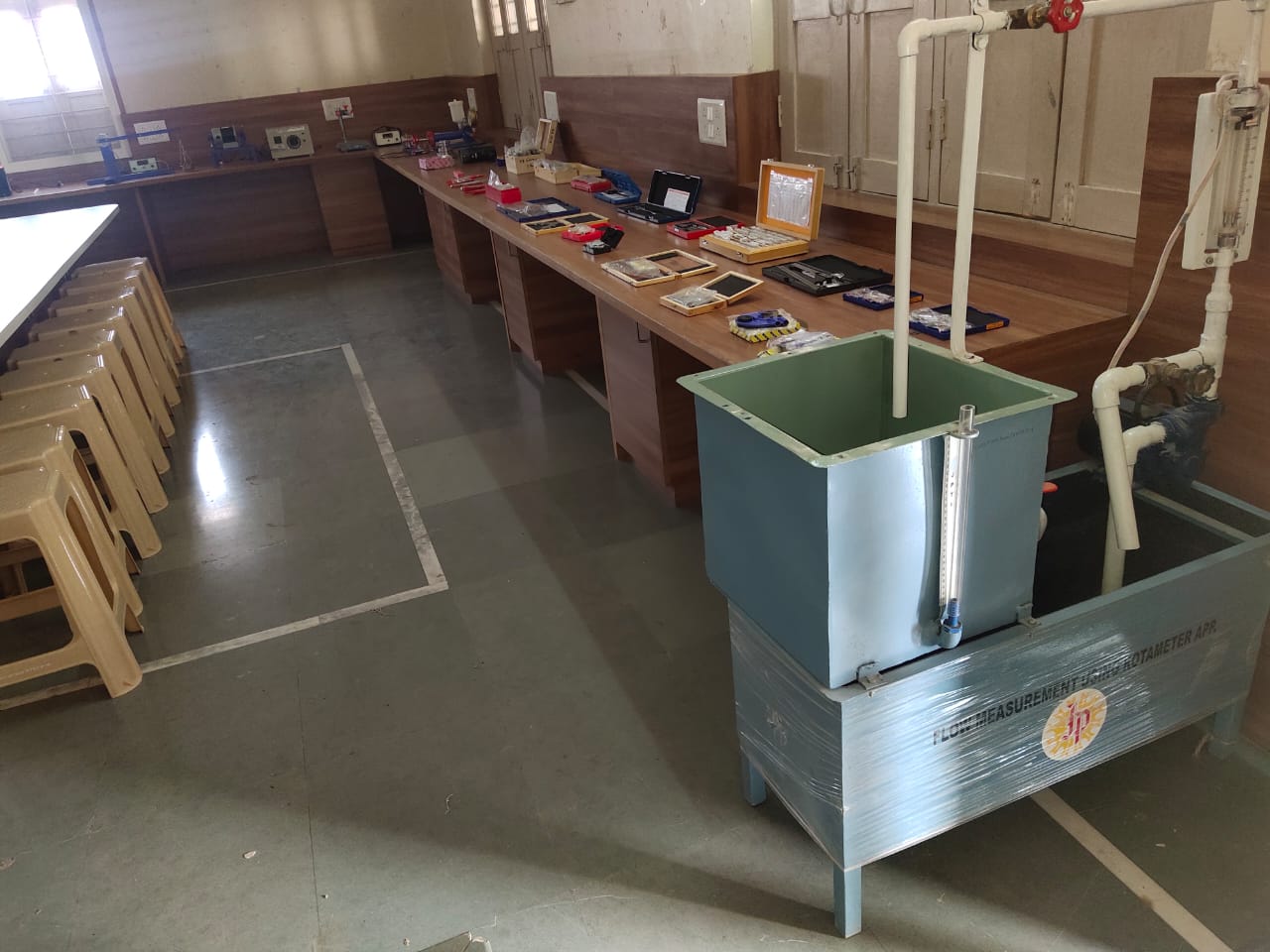
4. METALLURGY LABORATORY :
The Metallurgy lab provides students with practical experience in understanding the properties and behavior of metallic materials through various experiments and analyses. Students learn about metallography, heat treatment, mechanical testing, and corrosion behavior of metals and alloys. They utilize equipment such as optical microscopes, hardness testers, tensile testing machines, and corrosion chambers to examine microstructures, mechanical properties, and corrosion resistance of metallic specimens. Through these experiments, students gain insights into material structure-property relationships, which are essential for the design and selection of materials in engineering applications.
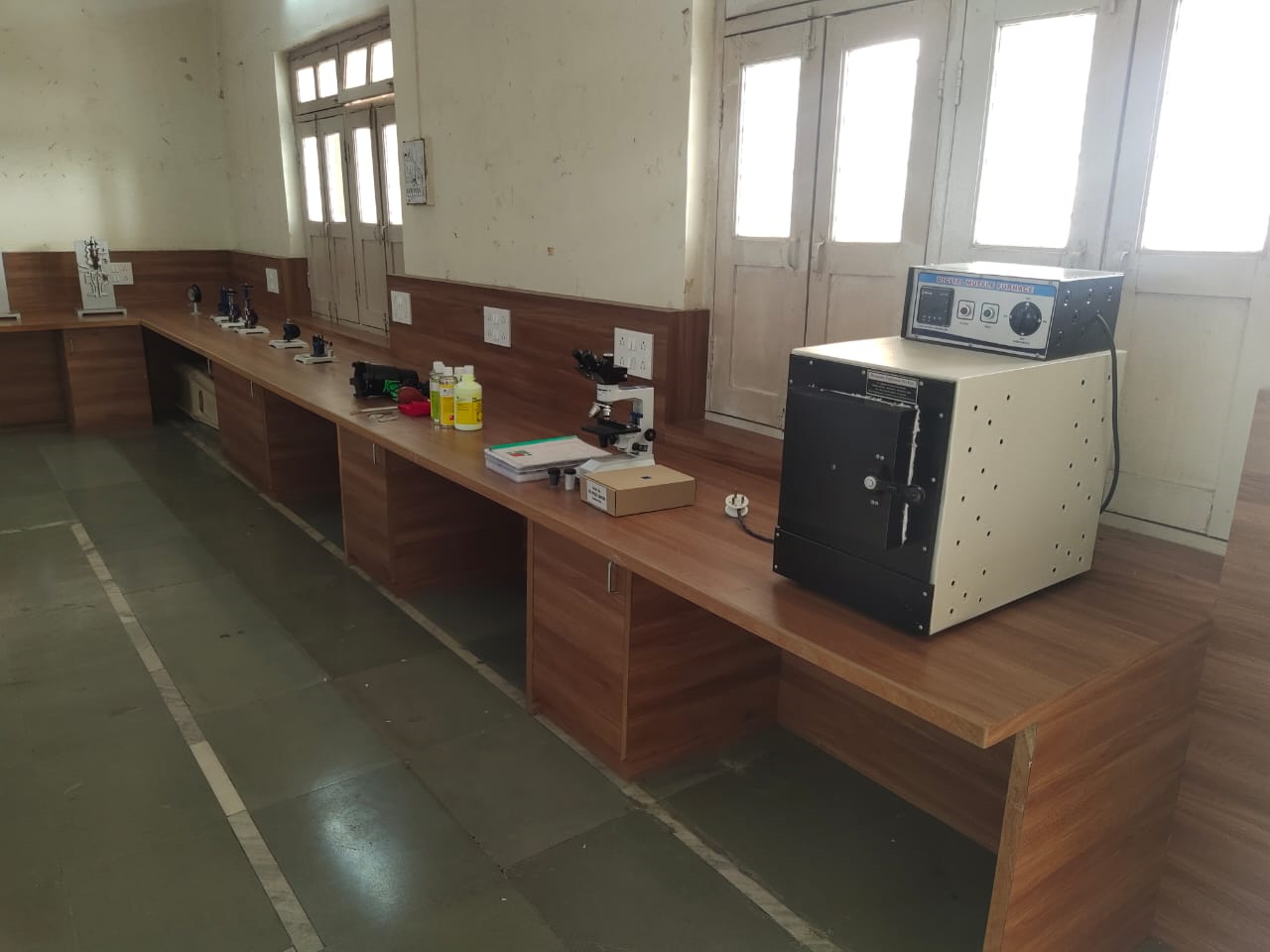
5. MANUFACTURING PROCESS LABORATORY :
The Manufacturing Process lab offers students hands-on experience in understanding various techniques and processes involved in manufacturing engineering. Through practical experiments and demonstrations, students learn about different manufacturing methods such as casting, machining, forming, welding, and additive manufacturing. They utilize equipment such as CNC machines, injection molding machines, lathes, milling machines, and 3D printers to fabricate components and products. The lab provides a platform for students to explore the principles, capabilities, and limitations of different manufacturing processes, and to develop skills in process planning, optimization, and quality control.

6. I.C. ENGINE LABORATORY :
The Internal Combustion Engine (I.C. Engine) lab provides students with hands-on experience in studying the operation and performance characteristics of internal combustion engines. Through practical experiments and demonstrations, students explore topics such as engine cycle analysis, combustion processes, fuel properties, and engine testing methods. They utilize equipment such as dynamometers, engine test rigs, exhaust gas analyzers, and data acquisition systems to measure engine parameters such as power output, fuel consumption, emissions, and efficiency. The lab offers students insights into engine design, operation, and optimization, essential for careers in automotive engineering, power generation, and related fields.
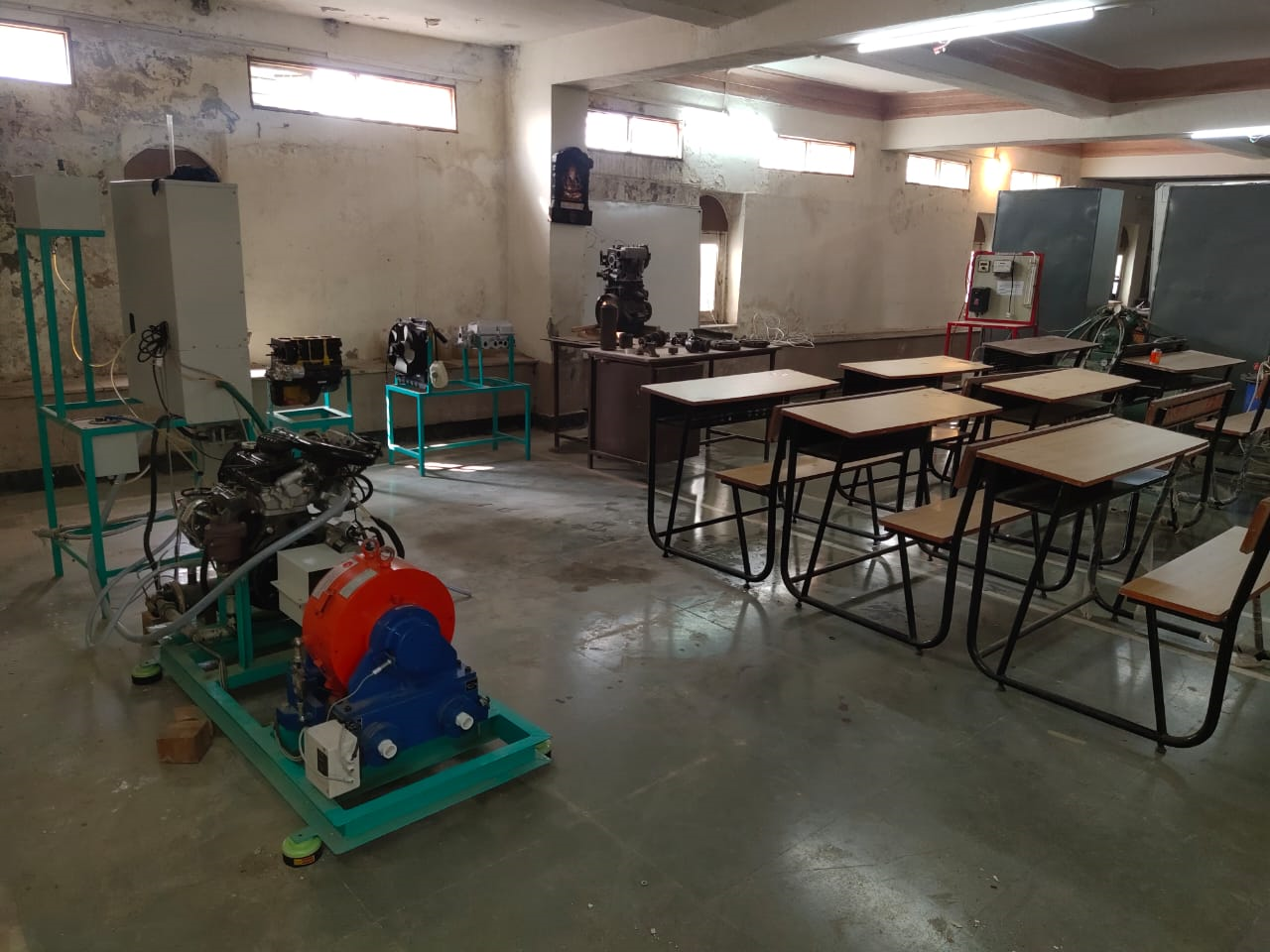
7. HEAT TRANSFER LABORATORY :
The Heat Transfer lab offers students practical experience in exploring the principles and applications of heat transfer phenomena. Through hands-on experiments, students study conduction, convection, and radiation heat transfer processes. They utilize equipment such as heat exchangers, thermal conductivity apparatus, and infrared cameras to measure temperature gradients, heat fluxes, and thermal properties of materials. The lab provides opportunities for students to analyze heat transfer mechanisms, calculate heat transfer rates, and evaluate heat transfer coefficients. This practical experience enhances students' understanding of heat transfer concepts and their ability to apply them to engineering problems in areas such as HVAC systems, thermal management, and energy conservation.
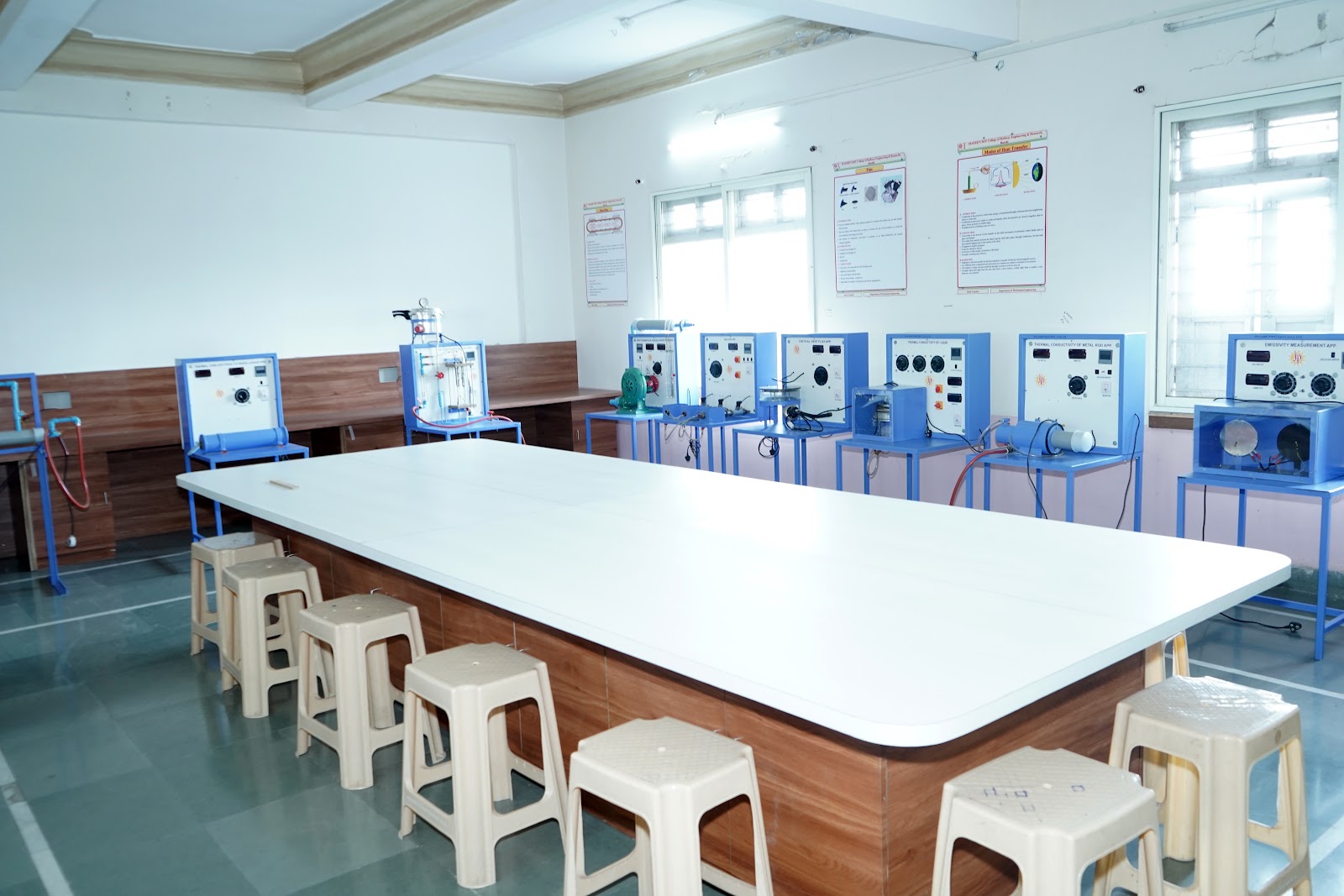
8. BASIC MECHANICAL ENGINEERING LABORATORY :
The Basic Mechanical Engineering lab introduces students to fundamental principles and concepts in mechanical engineering through hands-on experiments and demonstrations. Students engage in activities covering topics such as mechanics, materials science, thermodynamics, and fluid mechanics. They use basic equipment such as force meters, simple machines, thermometers, and fluid flow apparatus to explore fundamental principles like Newton's laws of motion, stress and strain analysis, heat transfer, and fluid behavior. This lab provides a foundational understanding of mechanical engineering principles and fosters problem-solving skills essential for further studies and careers in mechanical engineering and related fields.
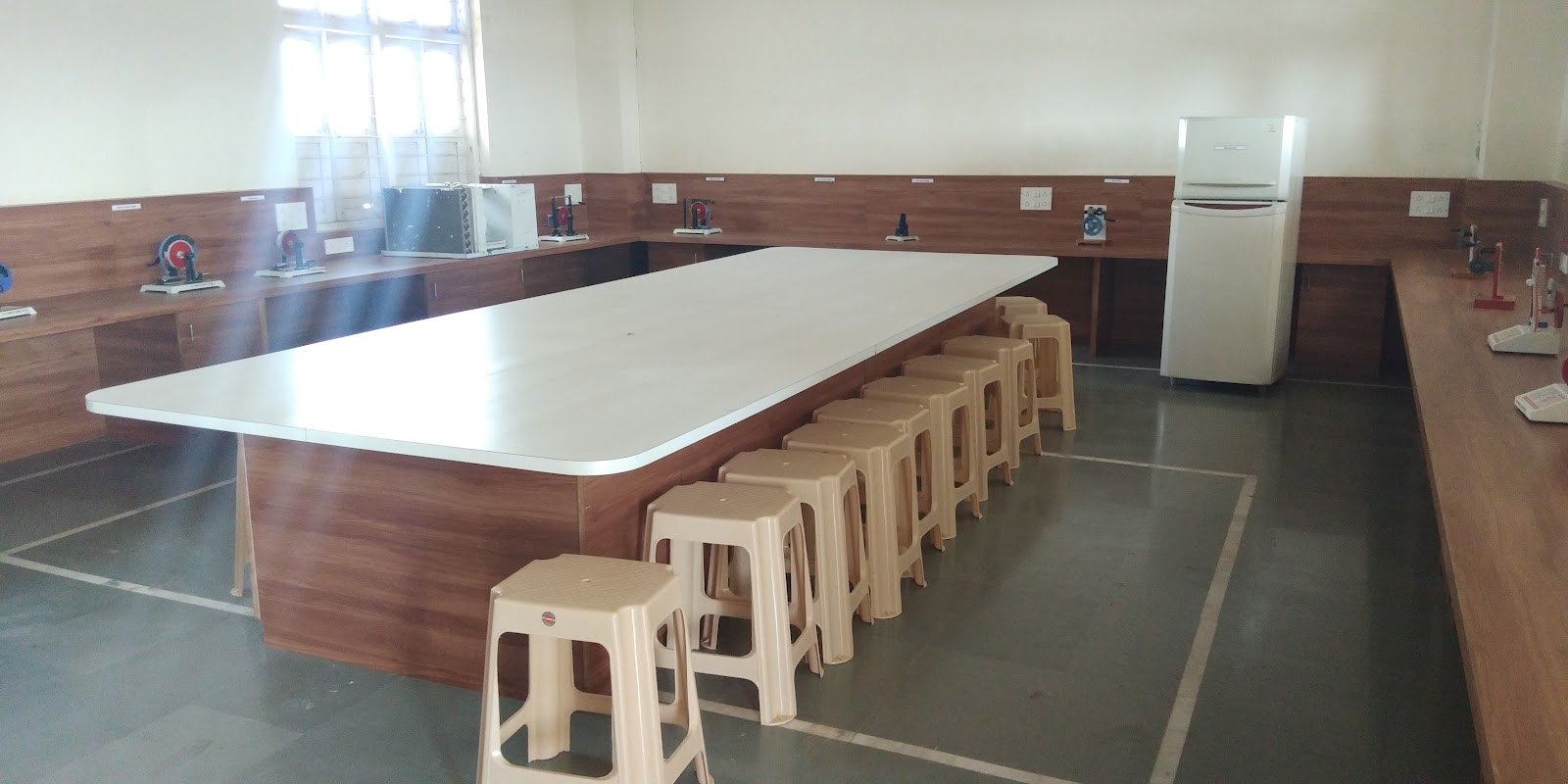
9. ELECTRICAL TECHNOLOGY LABORATORY :
The Electrical Technology lab provides students with practical experience in understanding and applying fundamental concepts in electrical engineering. Through hands-on experiments and demonstrations, students explore topics such as circuit analysis, electrical measurements, power systems, and electromechanical devices. They use equipment such as breadboards, oscilloscopes, multimeters, and power supplies to build and analyze electrical circuits, measure voltage, current, and resistance, and study the behavior of electrical components and systems. The lab offers students opportunities to apply theoretical knowledge to real-world electrical engineering problems, enhancing their understanding of electrical principles and developing skills in circuit design, troubleshooting, and experimentation.
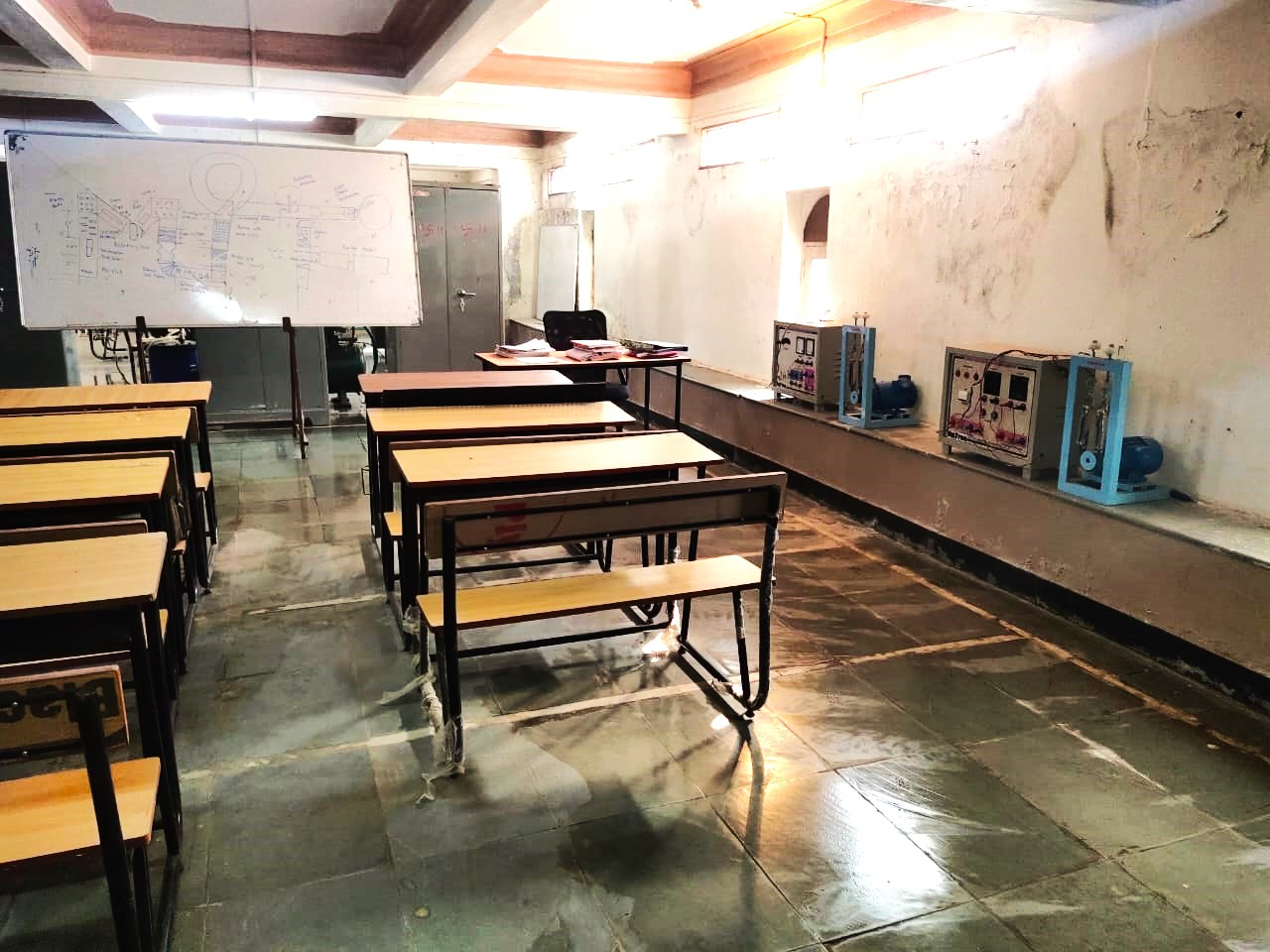
10. WORKSHOP :
The Mechanical Workshop provides students with practical training in basic machining and fabrication techniques essential for mechanical engineering. Through hands-on activities, students learn how to operate common workshop tools and equipment safely and effectively. They gain experience in processes such as lathe turning, milling, drilling, grinding, and welding. Additionally, students are introduced to principles of metrology, tool selection, and workpiece setup. The workshop environment allows students to develop hands-on skills, problem-solving abilities, and an understanding of manufacturing processes that are foundational for engineering practice.
